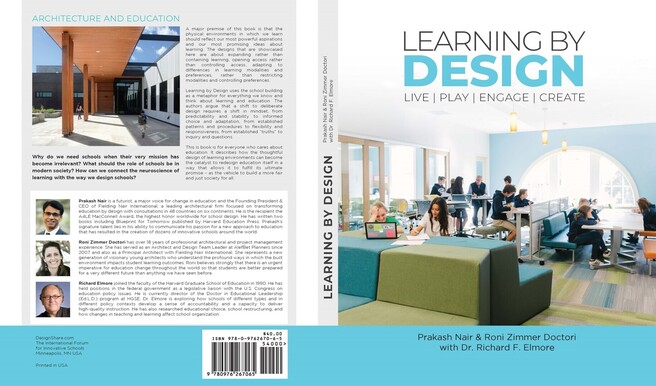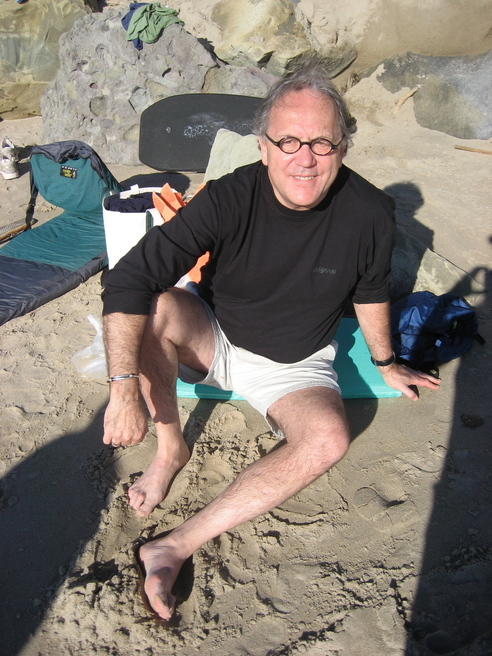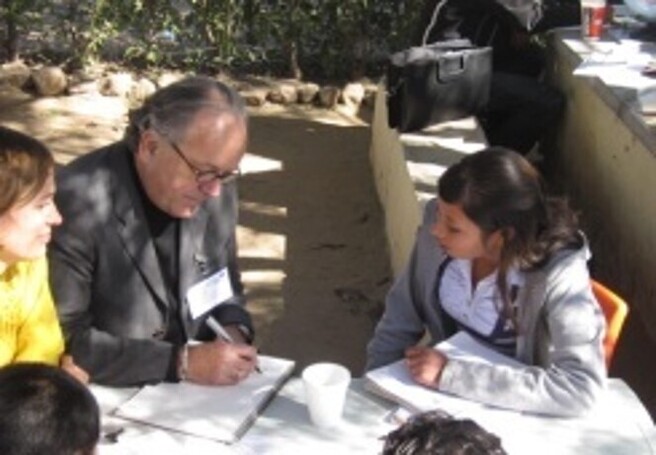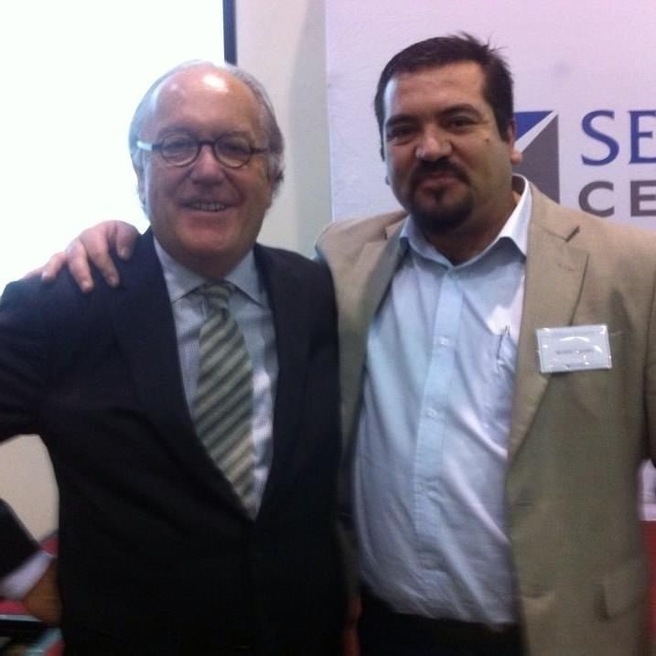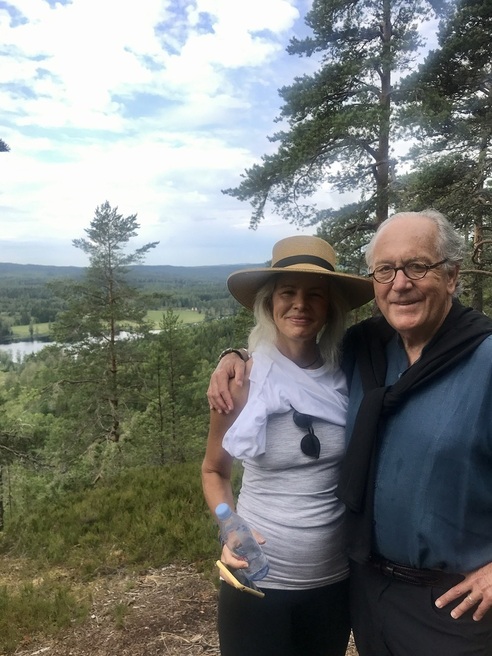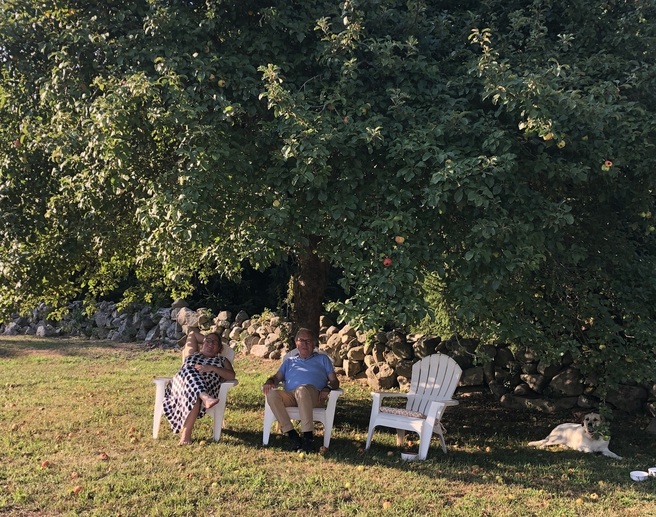
When I first came to know Richard he was called Dick, and honestly, sometimes he lived up to his name. In 1996 my new friend, Kirsten, and I enrolled in the first of several classes. We tussled with him around ideas. He had very strongly held ideas. Kirsten wrote poetic weekly briefs that described her beautiful perspective that learning is soul-work. I chafed at being told to write on-demand, and worked through my ideas in drawings, mind maps, and an assortment of other pieces, that Richard finally gave up on trying to figure out how to assess. We gave him a hard time. We loved the intellectual push and pull. AND, as one of my doctoral committee members, I almost did violence to him as I tried to get him to sit down and read my drafts so that I could graduate before I was so old I would have to retire. I did not always find Richard to be an easy person, but he was so very easy to love.
In our communal life, Richard was Richie. A dear, introspective, creative soul. A lover of jazz and poetry. A daily writer of Haiku's. A deep learner. A creator of meals that blended flavors in daring and inspired ways. Sunday dinner with family was the highlight of his week. He loved to be outside--I would often come out my back door to sit on our deck and he would be relaxed in the late afternoon sun, listening to NPR, roasting a chicken on the grill. When it was time to shovel the driveway, he was among the first to head out to start up the snow blower; prickly if we ran the motor too hard when it was our turn; uncomplaining though he felt the cold so profoundly.
In January, Kirsten, Luca, Richard and I spent a weekend on Cape Cod--one of Kirsten and Richard's favorite places to be in nature, by water, and in the light of the sun. The hours we were together brought the full spectrum of Richard: he cooked, helped bathe the little dogs in the kitchen sink, lounged in bed reading on his phone. He ate a Swedish breakfast savoring it over two hours, while reading almost every article in the paper. He drew and wrote, we walked and chatted. In the evening, we watched a Melissa McCarthy movie. He laughed so hard (as did we all), that tears ran down his face. His humor was beautiful. His smile and the glint in his eye, his belly laugh and his little chortle, his jokes and his pleasure in the absurd.
One of the greatest gifts of my life is how much Richie loved my daughter, Luca. He delighted in her. He appreciated her as a full human. He was there, with Kirsten and Lily, on the day Luca and I came home from the hospital--of course with an enormous meal in hand. He's been there throughout the milestones of her life. Most recently, he helped her join the most amazing program to finish out high school, eagerly engaging with her about the work she was undertaking. Luca has found her passion and path through this gift from Richard-- just as she developed her love of inventive cooking from him, shared his love of art, and grew to love jazz. He inspired her, in his understated but deeply passionate way. This is one of the most profound gifts of Richard's presence in my life.
One of the things that Richard hated in life was his birthday. He never felt a desire to celebrate this day, and we all tried to honor this, though celebrating life on birthdays is a special thing in Kirsten's family. We never remembered how old he was, and most of the time he was cagey about the actual day in March. A few years ago, he and I were talking about how much the Spring Equinox meant to us both. For us, the winter was hard: the cold and dark of New England dampened our mood and energy, encouraging us to overload on bread, mashed potatoes, and pasta. Though spring rarely comes to Boston before May, for Richie, Kirsten and I, the Spring Equinox was a moment of hope and an awakening of new life. And so, we have celebrated Richie on this day.
by Senryu in the 18th century. (Part of a book of Japanese Death Poems)
Bitter winds of winter--
but later, river willow,
open up your buds.
May we all light a candle for this dear soul this March.
In the quiet way that was so much a part of his later life, Richie has been here, observing, loving, exploring the inner landscape of his soul, and participating in the vibrant, full lives of his wife, children, grandchildren and dear friends, in enduring ways that are forever meaningful to us all.


